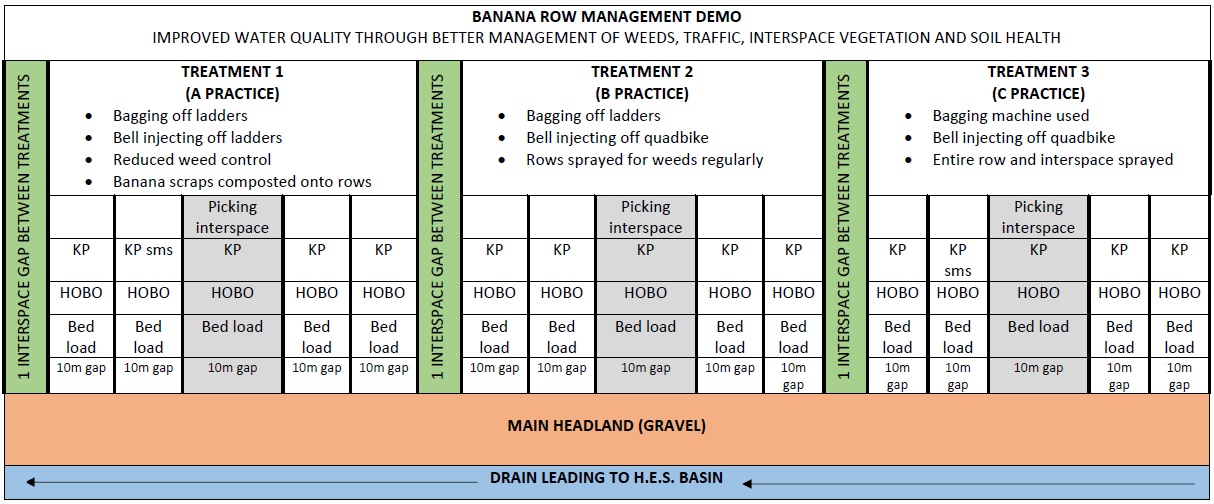All growers know that bananas require year-round paddock work, which means there is greater risk of erosion in wet conditions.
As part of a major reef water quality project, Innisfail banana farmer Rob Zahra is demonstrating the effects of reduced traffic in banana inter-rows and the potential benefits to water quality, soil health and rates of soil erosion.
Sandra Henrich, Johnstone Basin Coordinator for the Wet Tropics Major Integrated Project (MIP) says the industry is focused on finding sustainable solutions to stop sediment loss.
“No one wants to be losing top soil from their paddocks. It impacts production, as well as water quality,” she said.
“Whilst it’s accepted knowledge that having ground cover in the inter-row prevents erosion, it can be difficult to maintain in Wet Tropics conditions.”
“Wet conditions, poor light penetration and constant machinery traffic in all weather can affect the quality of groundcover, which has flow on effects for soil loss and therefore the quality of water leaving the farm.”
The project is one of the many water quality projects that are a part of the Wet Tropics MIP.
The demonstration site is located on Mr Zahra’s Bamboo Creek property, at Innisfail. It is comparing a suite of inter-row management practices that affect ground cover establishment and maintenance.
Rob said he’s looking forward to the demonstration site providing economic data for each scenario, so it can be used as a decision support tool.
“I know sediment loss is an issue on my farm – it’s the reason I got involved. It’s one of those things where you’re always trying to find a good balance between doing the right thing environmentally and making sure it stacks up economically.”
“For instance, bagging machines have an impact on wheel ruts and bog holes so I’m interested to see the comparison between purchasing, operating and maintaining a bagging machine as opposed to the additional labour to bag from a ladder,” Rob said.
The three management systems being compared represent the common methods of farm management used in the industry today. These include heavy weed and inter-row spraying, standard procedure of traffic and banded spraying, and a less intensive approach which restricts vehicles, and takes a targeted approach to weed management.
Ground cover, soil health and rates of erosion will be compared from each of the designated rows over this wet season. Results will be provided back to the landholder and wider banana industry in partnership with ABGC extension officers. This information will also be shared with the wider growing community as the principles apply to all horticultural systems.
Through the MIP, Rob has also implemented a High Efficiency Sediment Basin on his farm.
Ms Henrich said that there is no substitute for best management practice, but it is important to acknowledge the constraints of farming systems and landscape conditions.
“Even though best management practices reduce the potential for losses, whole-of-farm approaches are important. Treatment systems can help to stop sediment loss that management practices alone haven’t been able to be prevent,” she said.
The Wet Tropics Major Integrated Project is funded by the Queensland Government through the Reef Water Quality Program.

